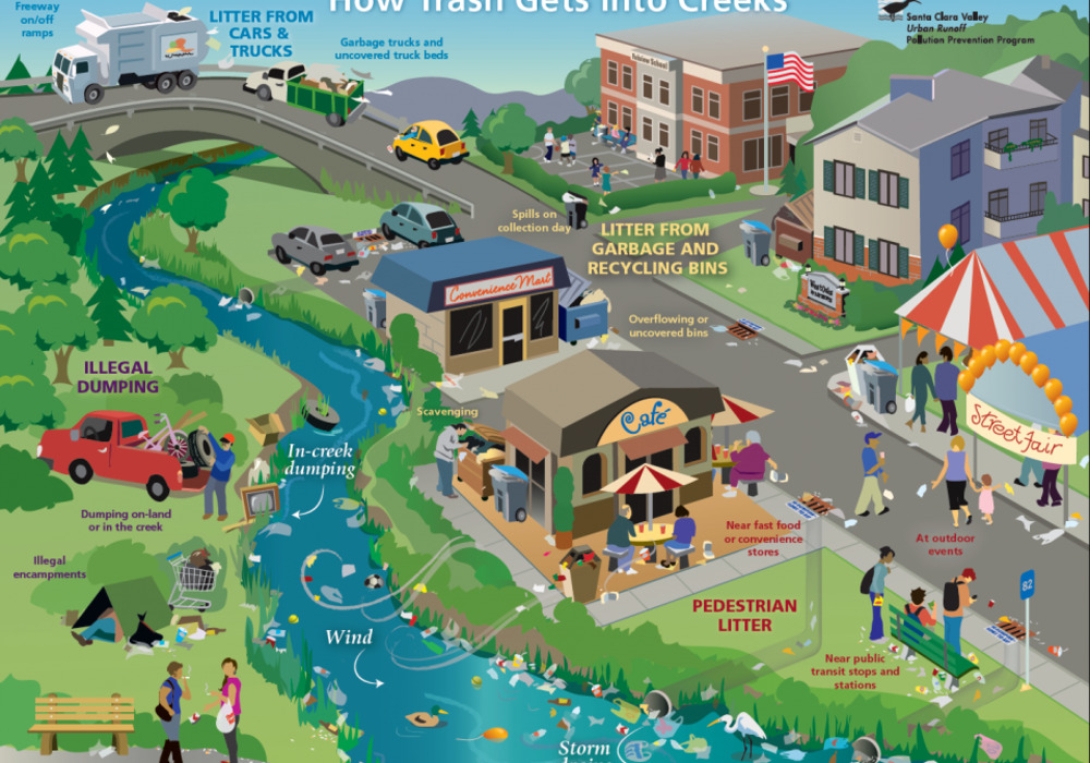
Resource Category
Resource Subject
Resource Content Type
EPA's Trash Free Waters (TFW) program refers to the garbage polluting U.S. rivers, lakes, streams, and creeks as "aquatic trash." Most of the garbage that ends up in waterways comes from land-based activities. Garbage can easily become aquatic trash if it is not properly disposed of or securely contained. When garbage is littered on the ground rather than placed in a recycle, compost, or trash bin, rain and wind often carries it into storm drains, streams, canals, and rivers. For example, a cigarette butt tossed on the ground might wash into a storm drain and travel through the stormwater system, which in some cases, leads directly into waterways. Cigarette butts contain plastic that will remain in the environment for many years.